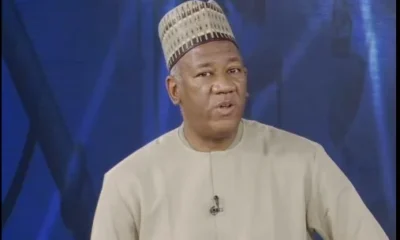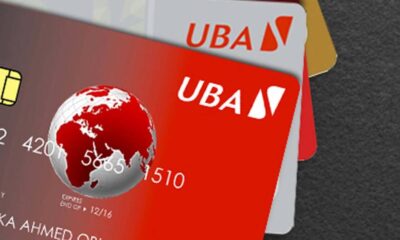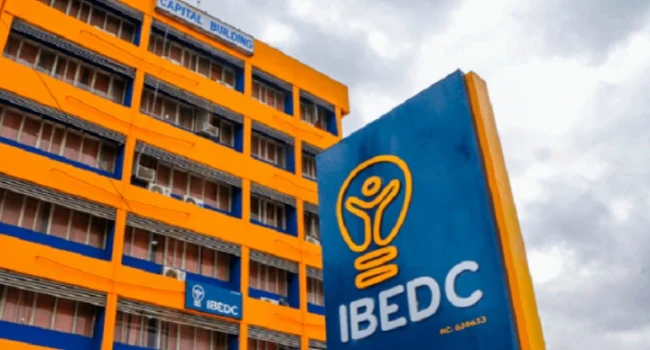Pan African financial institution, United Bank for Africa (UBA) Plc, has rewarded 10 of its loyal customers with a total sum of N10m in the quarterly draws of the ongoing UBA Savings Promo.
This promo, which is held every quarter, is intended to appreciate loyal customers of the bank, who have stayed with the bank over the years, and offers fresh opportunities for potential and intending customers to join the growing number of UBA millionaires who have in the past benefitted from several Promo.
The virtual and transparent electronic draw which was held on Friday was transmitted live via zoom and the Facebook platform in strict compliance with social distancing rules as directed by the Federal and Lagos State Government.
UBA’s Head Personal Banking, Osita Ede, who addressed participants just before the draws, said there is no better time to give back and delight customers than this challenging economic period where people need all the support, they can get to make life more meaningful.
He said, “As a bank, UBA has been rewarding customers, we have been doing this for several years now; from the Wise Savers Promo, Bumper Draws, and now this. We have been doing this to touch lives and to show appreciation to our customers to tell them we are grateful for their business. This is also an opportunity to reward them for their loyalty to the bank.
Ede added that the promo is also a way of encouraging savings in a bid towards promoting financial inclusion, as statistics show that a lot of Nigerians are still largely underbanked.
“Our key objective is to encourage our customers to save regularly. We are here to support them and encourage them to save and ultimately grow as well because we are aware that they are invaluable to all that we do;” Ede explained.
A representative of the National Regulatory Commission, Peace Ibadie, who witnessed the draws, congratulated the 10 winners and commended the bank for its efforts at rewarding loyal customers, especially in the tough economic and business environment.
“Congratulations to all the winners, I am glad to be a part of this; UBA is always transparent in their promos and we can fully attest to this. It is important that the bank is also actively encouraging the savings culture. Again, I say congratulations,” she said.
The winners who cut across all the zones of the country are Emeka Onyemauche; Ezeigbokwe Oluebube Purity; Omoniyi A Jaiyeola; Olawale Omotayo Idowu; Zaharadeen Yandaki Umar; Aliyu Yaro Bakari; Samuel Enan Esua; Joseph Eze; Deborah Folusho Adebayo and Lucia Chinyere Adim.
When contacted via their mobile phone, the winners expressed their gratitude to the bank as they said the winnings will go a long way in meeting their pressing needs, especially in these trying times.
One of the winners, Samuel Enan Esan, who was delighted at the news that he just won N1m, was full of praises. “Thank you UBA,” he stated.
Aliyu Yaro Bakari. who was extremely excited at the news, said, “Oh I am very happy, UBA is the best, you are the best, thank you very much,” he remarked when he learnt he was also one of the beneficiaries of N1m.
To qualify for the promo, new and existing customers of the bank are expected to make a one-time deposit of at least N30,000; before each draw date. Savings account holders eligible for this draw include Target, Bumper, NextGen, Savings, Teens & Kiddies.
Apart from the savings promo which is held every three months, the bank also has the UBA Bumper Promo which is held monthly, where the first three winning customers are rewarded with N2m, Rent for a year at N1.2m and N500,000 respectively; with 20 others winning N100,000 each as consolation prizes.
United Bank for Africa Plc is a leading Pan-African financial institution, offering banking services to more than twenty million customers, across 1,000 business offices and customer touchpoints, in 20 African countries. With its presence in New York, London, and Paris, UBA is connecting people and businesses across Africa through retail, commercial and corporate banking, innovative cross-border payments and remittances, trade finance, and ancillary banking services.

 BIG STORY4 days ago
BIG STORY4 days ago
 BIG STORY3 days ago
BIG STORY3 days ago
 BIG STORY4 days ago
BIG STORY4 days ago
 BIG STORY3 days ago
BIG STORY3 days ago
 BIG STORY2 days ago
BIG STORY2 days ago
 BIG STORY4 days ago
BIG STORY4 days ago
 BIG STORY2 days ago
BIG STORY2 days ago
 BIG STORY4 days ago
BIG STORY4 days ago
























